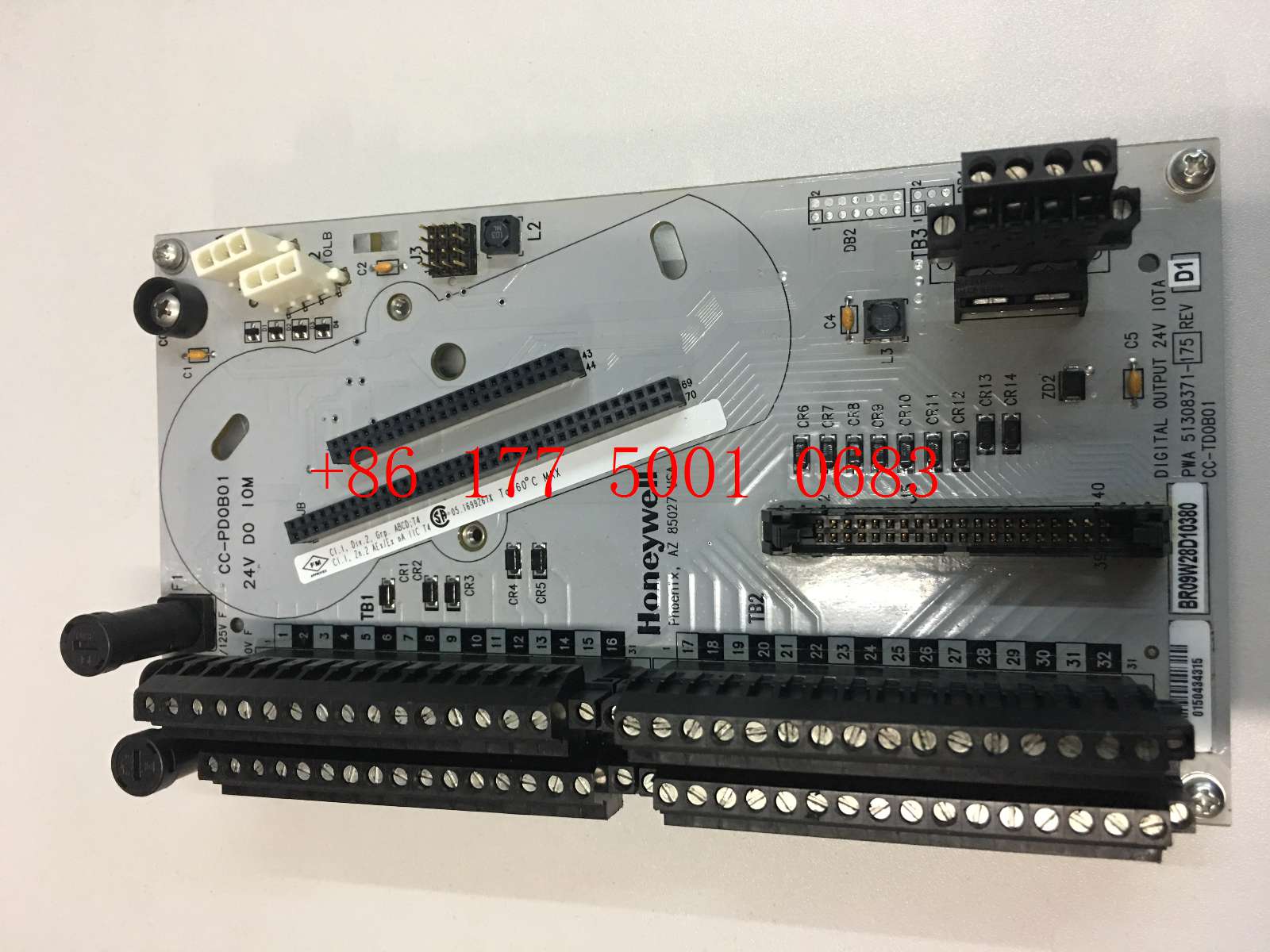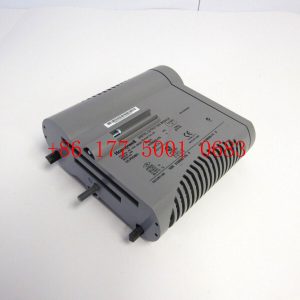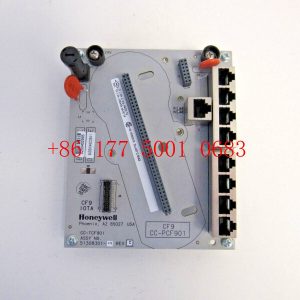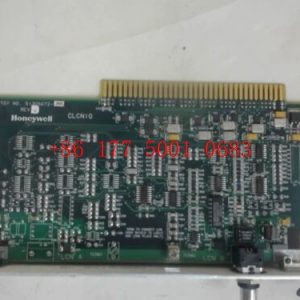Description
hardware flow control. It is an ideal choice in the field of industrial automation.
Why is the industrial Internet inseparable from industrial control?
ABB Global CEO Ulrich Spiesshofer recently accepted an exclusive interview with a reporter from Caijing in New York. He believes that the global manufacturing industry is
undergoing drastic changes. The era of labor arbitrage is over. Labor costs are no longer the focus of competition. The future of manufacturing lies in In factories that are smaller,
closer to consumers, and more agile. Artificial intelligence ( AI ) is the most important technology shaping the future of manufacturing. Currently, AI technology is mainly used in the
consumer field, but its large-scale application in the industrial field and among enterprises is more critical.
Digital transformation has been a keyword for global manufacturing giants in the past two years, and the industrial Internet is the implementation form of digital transformation.
General Electric (GE), Siemens and ABB are all leaders in this regard . Spiesshofer believes that GE”s industrial Internet only collects data and analyzes but cannot control it.
As the world”s two largest industrial automation suppliers, ABB and Siemens have the ability to control equipment, which is a significant difference from GE.
ABB is headquartered in Zurich, Switzerland. Its history can be traced back to the 1880s. It started from the original electrical manufacturing business and has developed into an international manufacturing
giant including electrical products, robotics and motion control, industrial automation and power grid. In 2017, ABB”s revenue was US$34.3 billion, ranking 341st among the
Fortune 500 companies. Spiesshofer has served as CEO for nearly five years since taking office in September 2013.
Below are the details of the interview.
The era of labor arbitrage is over
Caijing: Is 2018 a good year for the manufacturing industry?
Spiesshofer: From a global perspective, GDP is growing and consumption is also growing. Overall positive.
Caijing: What crucial changes are taking place in the manufacturing industry?
Spiesshofer: The jobs of the future will be different from the jobs of the past. In the Middle Ages, craftsmen moved between villages, taking their tools with them to work where
there was demand; later we invented factories, integrated supply and demand, and invented logistics; later people realized that there was labor arbitrage (Labor Arbitrage, Refers to
the existence of moving industries that have lost technological advantages and technical barriers to areas with low labor prices to increase profits by reducing labor costs), so we place
factories in emerging countries to benefit from labor arbitrage.
Now, with the development of modern automation and robotics, we can break this picture and bring value addition closer to demand. I think the future of manufacturing is
in factories that are smaller, closer to consumers, and more agile. I believe that the global logistics chain will also be reduced in the future because we will produce products closer to consumers.
The era of labor arbitrage shaping the global manufacturing landscape will be over because we can offset this arbitrage.
Recently we opened a new factory in Germany. Due to the adoption of intelligent automation technology, its unit cost is exactly the same as that of the best factories in
China. So I think the local market will be repositioned in the future, and the positioning of competitiveness will also change from just considering costs to focusing more on technology and value.
Caijing: Many people are complaining that automation has caused people to lose their jobs, and artificial intelligence technology has made the complaints louder
. But these new technologies are also creating new jobs. How do you see the relationship between the two?
Spiesshofer: In 1990, one-third of the world”s population lived below the extreme poverty line. Today, only 8% rely on technology. In fact, countries with the
highest robot densities, such as Germany, South Korea, Singapore, and Japan, also have the lowest unemployment rates. Robots combined with educated people can create prosperity, produce more
affordable goods, and lead to economic growth. Government, education and business need to work together to keep up with the changing world.
Clearly, millions of jobs are disappearing, but millions of new ones are being created. Taking our own business as an example, we used to have many
employees doing metal casting and forging work, but now these tasks are automated. But now we have more employees working in the service industry, developing apps, and working with customers.
So I think we should not be afraid of change, but should lead our employees to manage change and promote change. If we succeed, global employment will eventually grow.
https://www.xmamazon.com
https://www.xmamazon.com
https://www.plcdcs.com/
www.module-plc.com/
https://www.ymgk.com
PMA323BE HIEE300308R1 ABB board
DSPC174 3BSE005461R1 ABB Analog input module
DSSB140 48980001-P ABB power module
PFSK160A 3BSE009514R1 ABB processor board
PFSK162 3BSE015088R1 ABB module
PFSK164 3BSE021180R1 ABB Analog I/O Modules
PFSK130 3BSE002616R1 ABB module
IC693MDL644 GE Series 90-30 DC Voltage Input Module
IC693MDL645CA GE Programmable Logic Controllers
IC693MDL645 GE Series 90-30 module
IC693MDL645LT GE Programmable Logic Controllers
IC693MDL646 GE Series 90-30 Discrete Input module
IC693MDL646LT GE 40 Volts DC rated PLC
IC693MDL646CA GE Series 90-30, 24 VDC Positive / Negative Logic discrete input module
IC693MDL648 GE 40 Volts DC rated PLC
IC693MDL654CA GE 5/12 volt DC (TTL) Positive/Negative Logic Input module
IC693MDL653 GE Series 90-30, 24 VDC Positive / Negative Logic discrete input module
IC693MDL654 GE 5/12 volt DC (TTL) Positive/Negative Logic Input module
IC693MDL654LT GE Series 90-30 Discrete Input module
IC693MDL655CA GE Series 90-30 Discrete Input module
IC693MDL655 GE Series 90-30 Discrete Input module
IC693MDL655LT GE Series 90-30 Discrete Input module
IC693MDL660 GE Series 90-30, 24 VDC Positive / Negative Logic discrete input module
IC693MDL740 GE Series 90-30 module
IC693MDL734LT GE 12/24 positive logic DC output module
IC693MDL740CA GE OUTPUT MODULE
IC693MDL741 GE 12/24 positive logic DC output module
IC693MDL740LT GE digital I/O module
IC693MDL741CA GE 12/24 positive logic DC output module
IC693MDL741LT GE digital I/O module
IC693MDL742 GE Protection (ESCP) Output module
IC693MDL748 GE digital I/O module
IC693MDL742LT GE Series 90-30, 12/24 VDC Positive logic output module
IC693CPU351 GE Series 90-30 component
IC693MDL750 GE digital I/O module
IC693MDL751 GE 32-point output module
IC693MDL752CA GE Output module
IC693MDL752 GE output module
IC693MDL752LT GE Output module
IC693MDL753CA GE positive logic output module
IC693MDL753LT GE 12/24 volt DC, 0.5A Positive Logic Output module
IC693MDL754 GE positive logic output module
IC693MDL760 GE digital output module
IC693MDL916 GE Series 90-30, relay output module
IC693MDL730 GE Series 90-30 12/24 VDC Positive logic output module
VME162PA-344SE-2G MOTOROLA Embedded Controller
URSHA GE Redesigned Power Supply Module
SR489-P5-LO-A20-E GE 489 Series Motor Management Relay
SR750-P1-G1-S1-HI-A20-R-E GE Multilin SR750 Relay
MC-4/11/22/400 ELAU Servo drive driver
PCH1026 GE Acceleration acceleration sensor
SR469-P5-LO-A20-E GE Multilin SR469 Relay
IS220PPROH1A GE Mark VI component
IS200TSVOH2B GE TERMINATION BD., SERVO
IC754VSI06STD-LH GE Operator Interface Products line
IC697PWR711K GE Power Supply Module









Reviews
There are no reviews yet.